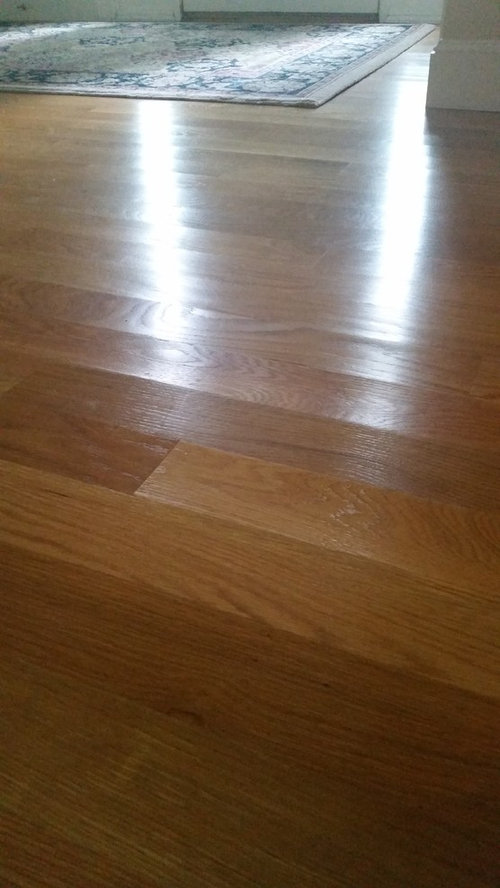wood floor buckling causes
This can cause the wood floor to expand because the moisture content in the air is higher. It is often accompanied by cupping or swelling.
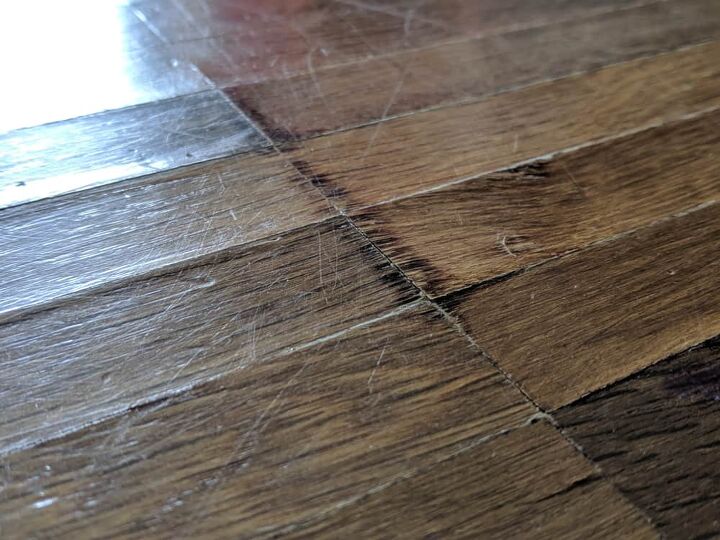
Hardwood Floor Buckling How To Fix It And Save Your Foor Upgraded Home
Since it is a floating floor the planks tend to contract when it is cool and expand when it is warm.

. So its natural to assume that a significant event preceded it such as a flood or an event that caused prolonged contact with water. This can happen after the wood floor suddenly gets flooded with large amounts of water and when moisture content builds up over time. Consider some of these wood floor buckling causes so you can prevent them from damaging your floors.
Hardwood floors will buckle if they are subjected to excess water. Meet the most likely reason for buckling in your wood floors. The buckling of wooden floors is also usual in high humid environments.
In addition to natural floodwater floods from a leaking washing machine plumbing leak or burst pipe. The water or moisture issue can be caused by various conditions such as humidity in the air leaking appliances moisture from subflooring a pipe freezing and bursting in winter lack of acclimation to the new environment or improper installation. Humidity Theres a reason gymnasiums have wood floors but locker rooms do not.
Buckling is a very significant reaction. Hardwood floors can also buckle in excessively humid environments. Even though you should clean up spills.
What Are the Causes of a Hardwood Floor Buckling. Vinyl is strong and sturdy but one thing that will weaken your flooring is dragging and dropping heavy items. Thats why if you live in an area.
The humidity levels in your home naturally change with season temperature and weather. Causes of Buckled Hardwood Floors Moisture primarily is the main cause of buckling. Leaking appliances or moisture from a concrete subfloor can buckle your wood floors.
While humidity level rises in summer it is very low in the winter. Therefore it is crucial to take precautions to prevent buckling. I am in a condo and the tenant.
Excessive job site moisture. Buckling laminate flooring is easy to fix if you know how to do it. Do wood floors expand in summer.
You could have moisture from a concrete subfloor. Categories Chelseas Ranch Revival. Hardwood floors buckle when the humidity levels in the lower levels of the house are too high in the crawlspace or basement explains the Basement Health Association in the article Negative Effects on Hardwood Floors.
The floor is buckling because the boards are growing due to increased moisture content. What Causes Wood Floors to Buckle. Humidity Fluctuation in humidity levels can affect hardwood floors.
Summer has months that are usually very high in humidity and heat. It usually happens just like that the wood floor got wet and buckled. If you live in an area with humid weather the floor can absorb moisture from the air during humid months.
Frequent dragging of heavy furniture and appliances across the room will pull the planks apart or cause them to strain under the heavyweight resulting in bending and buckling. Read on to find out what to do about it. Below are the most common reasons for wood floor buckling.
Water damage is a key reason for hardwood floor buckling Its fairly obvious that if your hardwood floor has been submerged in water buckling is likely. Any moisture that comes from below a subfloor or gets between the subfloor and the flooring. Improper or No Acclimation.
Wood floors need to breathe. This is why hardwood is not recommended for. Water Hardwood floors can react to moisture in various ways.
Heat by itself cannot cause the wood floor to buckle. When it gets wet and. Consistent water on the floorboards.
Wood Floor Problems Caused by Excessive Moisture Water on or Under the Floor. Lack of Proper Sealing Lack of sealants on hardwood flooring can cause mositure to penetrate into the wood causing it to buckle. It can cause the wood to expand a bit but not much.
The source could be several things. The cause of buckling is due to water or moisture being absorbed by the wood floor. The edges of each wood plank could curl up resembling a cup or the middle section might begin to swell.
Old or poor underlayment can lift up and cause buckling of the floor. It will take some investigative work to isolate exactly where the excess moisture or water is coming from. If the wood floor was installed on a wet slab.
It could be due to damaged or leaking appliances that have sprung a leak. What could be the problemHigh humidity is usually the culprit when floors buckle. Water damage is usually the reason for buckled floors but mistakes during installation are frequently the cause behind peaks.
The damage is characterized by your wood planks literally separating from the sub floor lifting and shifting in sporadic places across the room or in a small area. Old Wood Older sections of hardwood floors are more likely to buckle than newer sections. This can cause hardwood flooring to develop a life of its own and begin reacting to the atmosphere in which it lives.
Beyond improper humidity levels in the crawlspace and basement there are more potential causes for hardwood floor buckling. Damage from Over-application of Adhesives. This can cause hardwood to buckle show cracks or separation between boards turn up at the edges to cause cupping rise in the middle and lead to crowning or cause the boards to lift and get detached from the subfloor.
What Causes a Buckled Wood Floor. Water is hardwood floorings worst enemy. It can even be water damage that has permeated from another area of the home.
Buckling is a particularly extreme-case situation with wood flooring caused by extensive exposure to moisture. This problem is most commonly caused by. A buckling wood floor happens when the floor gets separated from the subfloor.
Changes in humidity levels are observed throughout the day and it has an impact on hardwood floors. Buckling occurs when laminate flooring does not have enough space to contract and expand with temperature changes. Crowning like buckling and peaking occurs when a floorboard is higher in the center than it is on the edges.
For example if a toilet overflows and the. What Causes Buckled Wood Floors. It usually happens after water is left standing on the wood or if the floors exposed to high humidity over a long span.
How to Keep Wood Floors from Buckling and Cupping - Todays Homeowner Lynn asks We recently had new siding put on our house and now the wood flooring is starting to buckle. The main reasons for moisture build up include. There is definitely a moisture issue at play here whether it be a leak from the bathroom or laundry room.
It is only when heat is combined with moisture that it will buckle.

What Is Peaking Buckling And Cupping In Wood Floors Builddirectlearning Center

What Is Peaking Buckling And Cupping In Wood Floors Builddirectlearning Center

6 Ways Humidity Can Affect Your Hardwood Floor Lauzon Flooring
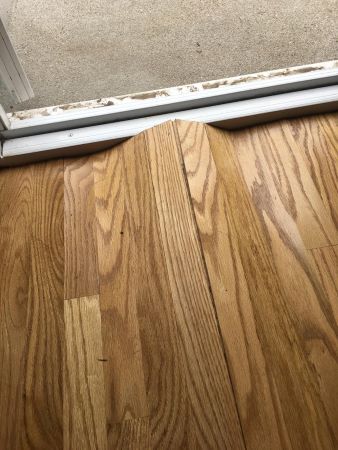
How To Fix Hardwood Floor Buckling Flooring Experts Com
Buckled Hardwood Floors Job Analysis Why Fixes
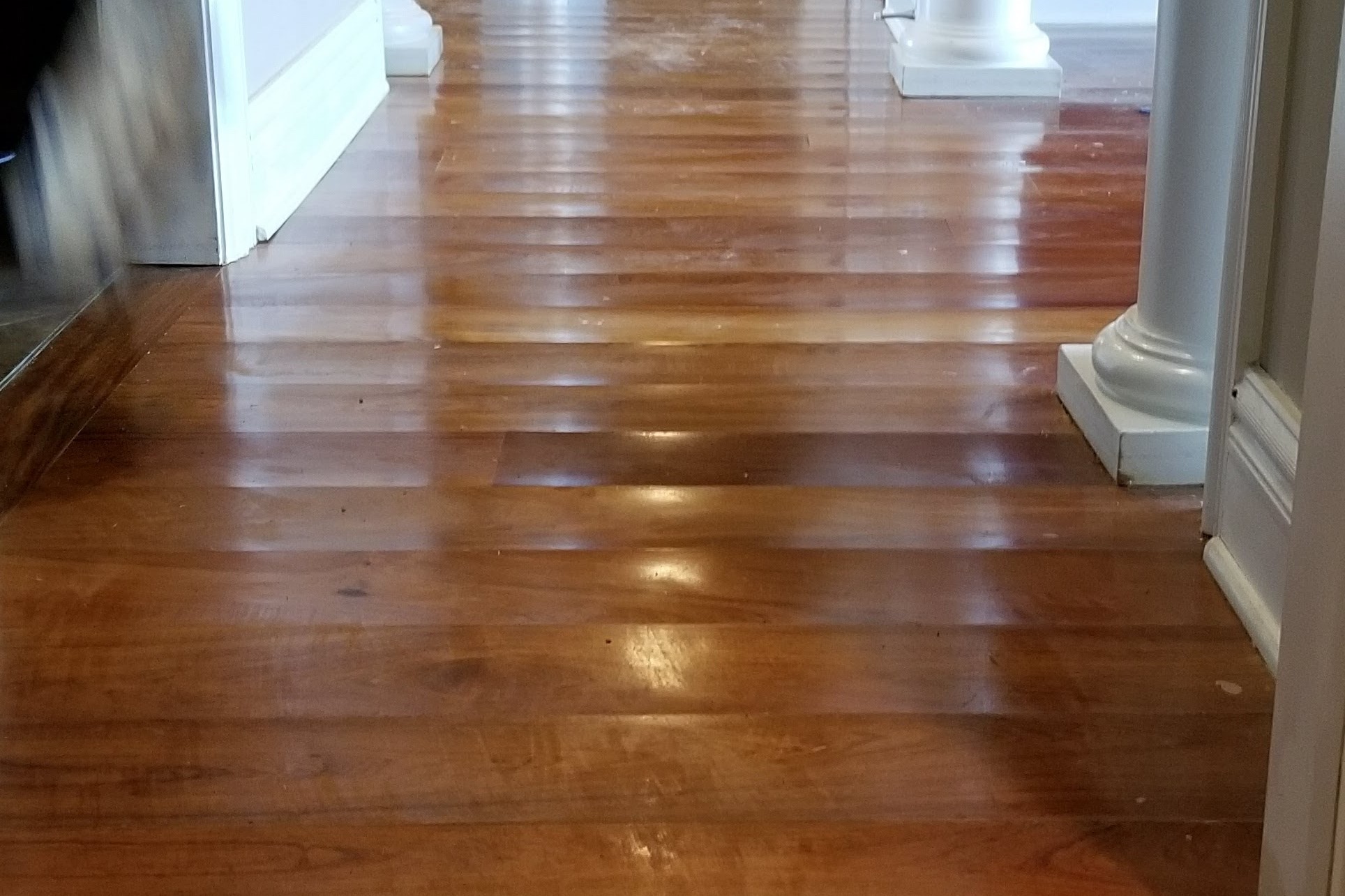
Why Floors Cup And How To Fix Them Jeffco Flooring

Buckling Hardwood Floors Above Vented Crawl Spaces Ask The Expert Lowcountry Basement Systems Youtube

What Causes Wood Floor Cupping What To Do Youtube
Hardwood Floor Problems Avoid Common Causes
What Causes Buckling And Cupping In Wood Floors Restoration By L B

Hardwood Floor Buckling Water Damage Floor Techie
How Quick And Easy Repair Buckled Hardwood Flooring The Crimson Bolt
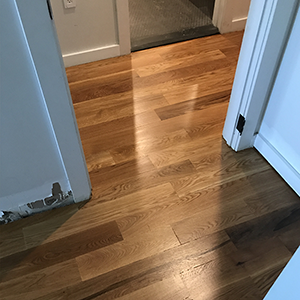
How To Repair Buckled Wood Floors Hardwood Flooring Contractors New Jersey New York City

Why Is My Hardwood Floor Buckling Wall 2 Wall Hardwoods Inc

What Is Peaking Buckling And Cupping In Wood Floors Builddirectlearning Center
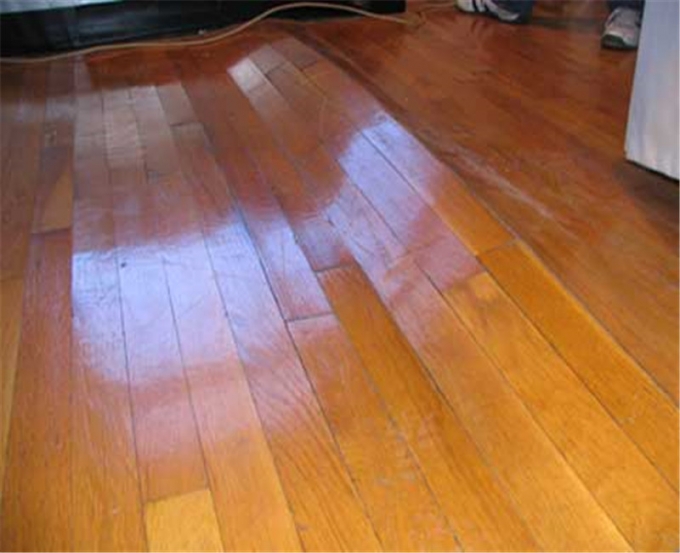
Problems How To Prevent Repaired Flooring Buckling On Hardwood Flooring

How To Fix Hardwood Floor Problems Cupping Crowning Chatter City Floor Supply
